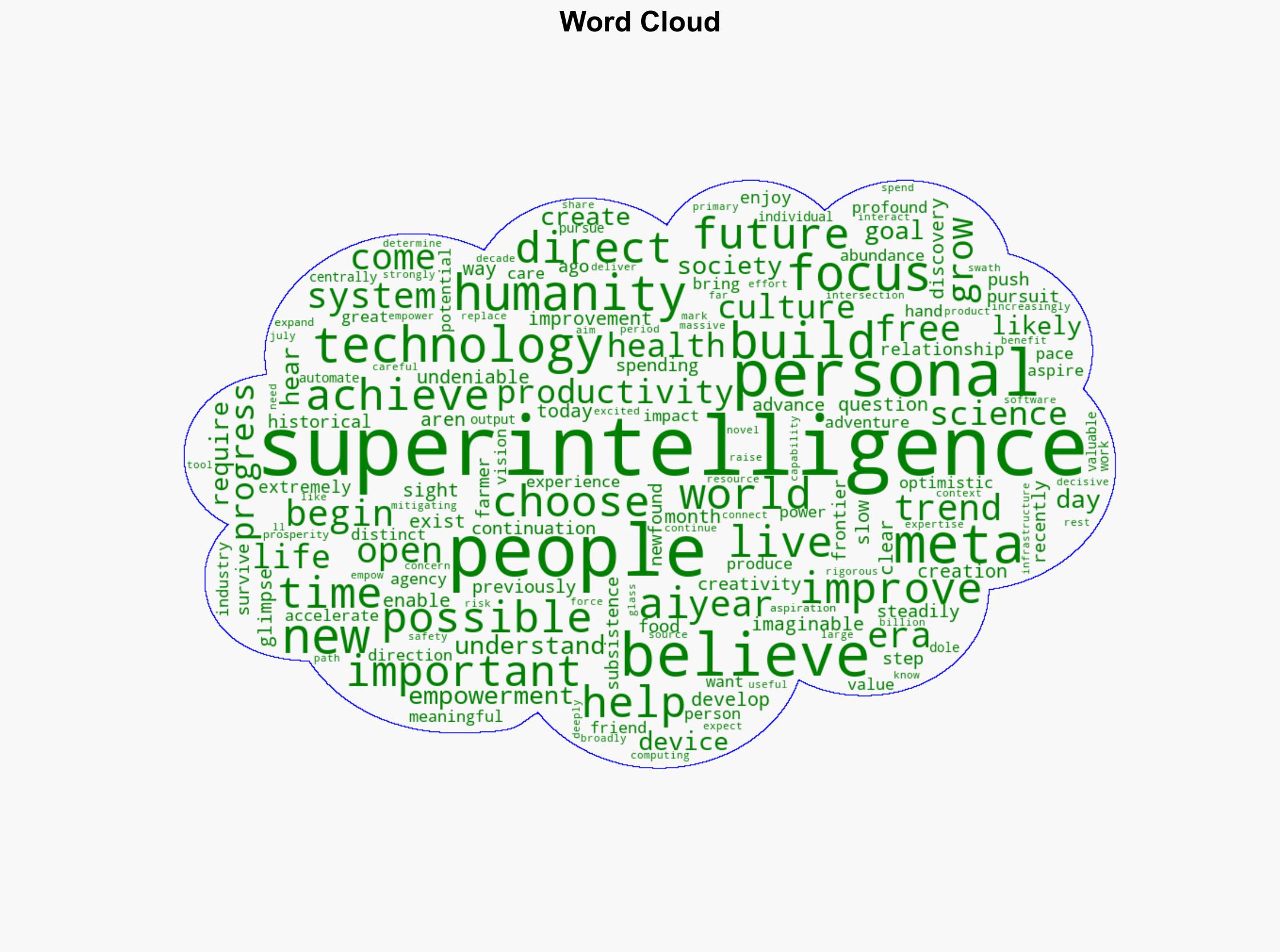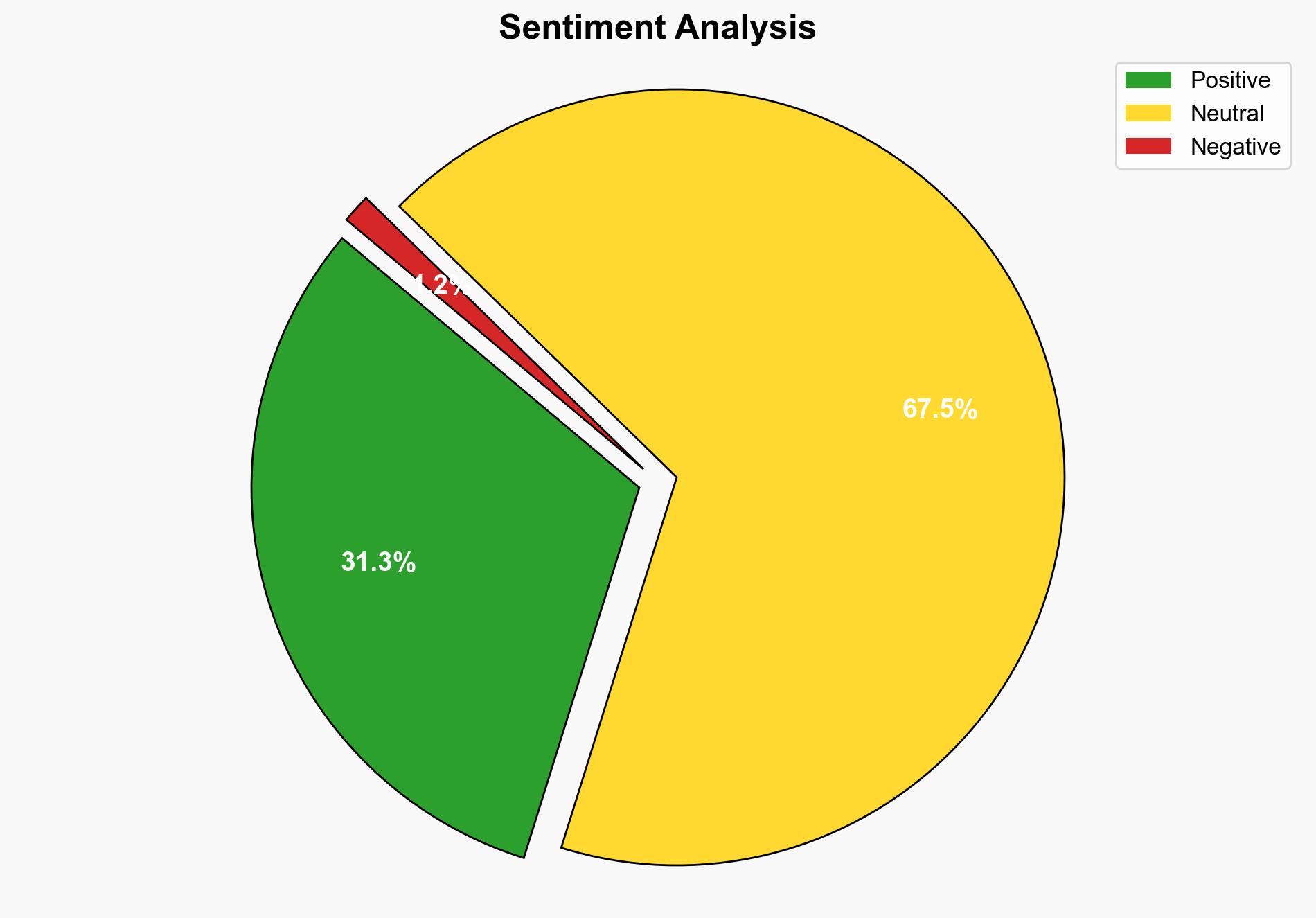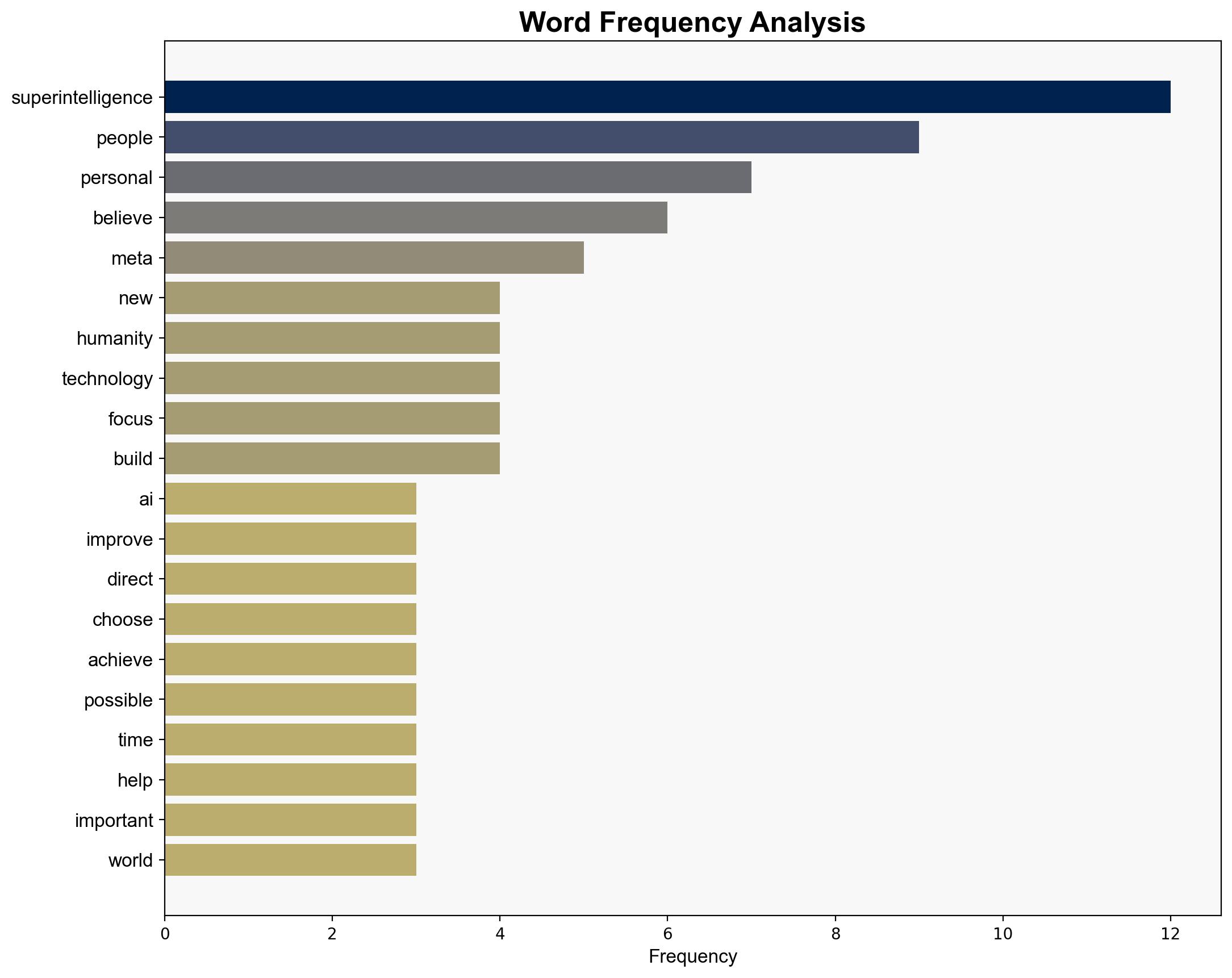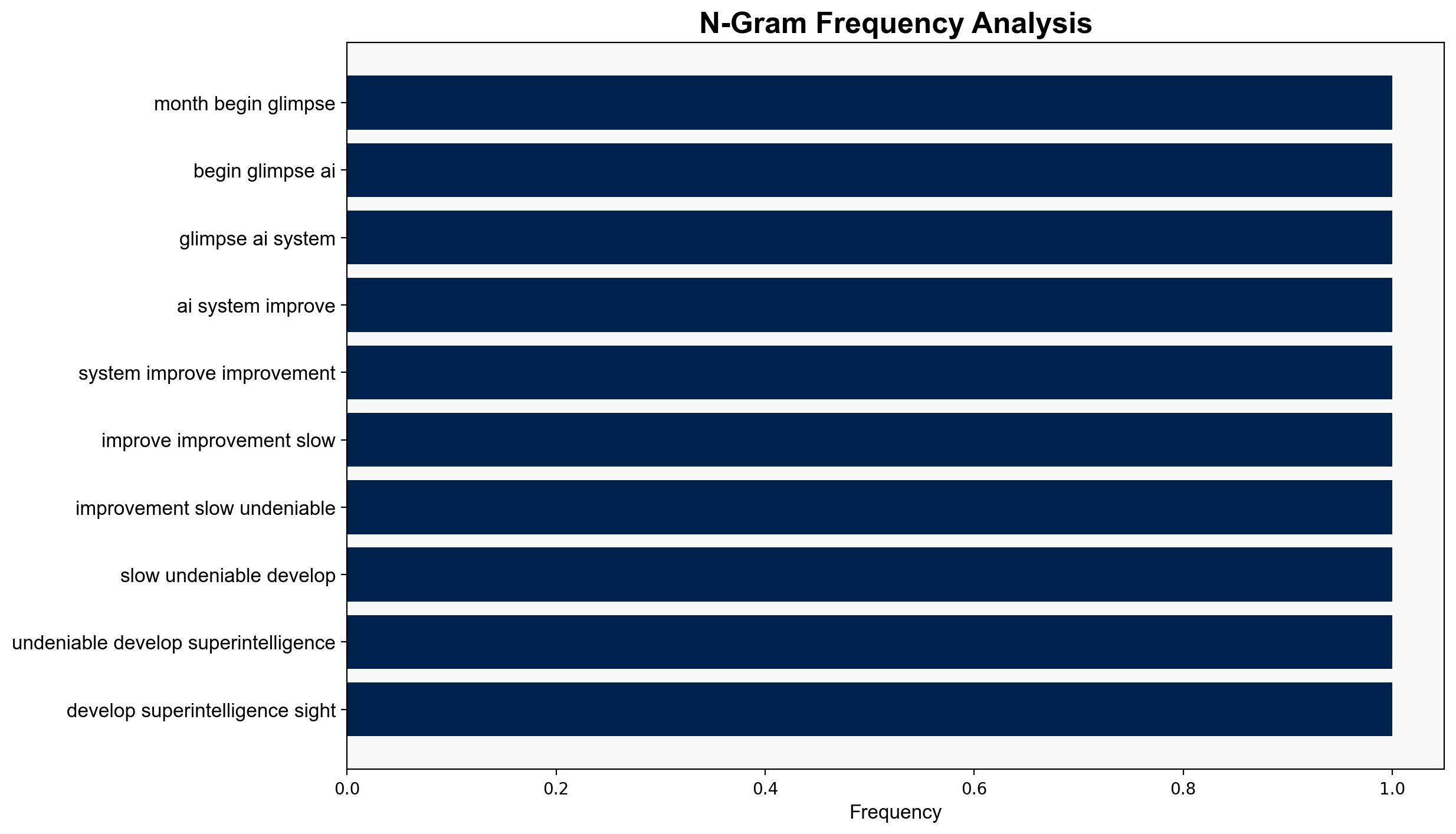Meta’s Vision for Superintelligence – Meta.com
Published on: 2025-07-30
Intelligence Report: Meta’s Vision for Superintelligence – Meta.com
1. BLUF (Bottom Line Up Front)
Meta’s vision for superintelligence suggests a transformative impact on personal empowerment and societal progress. The most supported hypothesis is that Meta aims to democratize superintelligence to enhance individual agency and societal prosperity. Confidence Level: Moderate. Recommended action: Monitor Meta’s developments in AI to assess alignment with stated goals and potential risks.
2. Competing Hypotheses
Hypothesis 1: Meta’s vision for superintelligence is genuinely focused on empowering individuals by providing tools that enhance personal agency and societal progress. This aligns with their stated mission to democratize technology and improve quality of life globally.
Hypothesis 2: Meta’s vision is primarily a strategic positioning to dominate the AI market, using the rhetoric of personal empowerment as a means to gain public support and regulatory leniency. The focus on individual empowerment may be a secondary goal to achieving market dominance.
Using ACH 2.0, Hypothesis 1 is better supported by Meta’s historical emphasis on connectivity and empowerment. However, Hypothesis 2 cannot be dismissed given the competitive nature of the tech industry and Meta’s need to maintain market leadership.
3. Key Assumptions and Red Flags
Assumptions:
– Meta assumes that superintelligence can be safely integrated into daily life without significant societal disruption.
– The belief that open-source development will mitigate risks and enhance societal benefits.
Red Flags:
– Lack of detailed risk mitigation strategies for potential misuse of superintelligence.
– Possible underestimation of the societal and ethical challenges posed by widespread AI deployment.
4. Implications and Strategic Risks
The pursuit of superintelligence could lead to significant economic shifts, potentially disrupting labor markets. Cybersecurity risks may increase as AI systems become more integrated into critical infrastructure. Geopolitically, nations may race to develop similar technologies, leading to tensions. Psychologically, reliance on AI could impact human decision-making and autonomy.
5. Recommendations and Outlook
- Monitor Meta’s AI developments and collaborations to assess alignment with stated goals.
- Engage in dialogue with Meta to understand their risk mitigation strategies.
- Scenario Projections:
- Best Case: Meta successfully implements superintelligence, leading to enhanced global prosperity and individual empowerment.
- Worst Case: Superintelligence exacerbates inequality and leads to significant societal disruption.
- Most Likely: Incremental progress with mixed outcomes, requiring ongoing adaptation and regulation.
6. Key Individuals and Entities
Mark Zuckerberg (Meta CEO) is pivotal in driving the vision for superintelligence. Meta’s AI research teams and partnerships with academic institutions are critical to this initiative.
7. Thematic Tags
national security threats, cybersecurity, technological innovation, AI ethics, global economic impact




